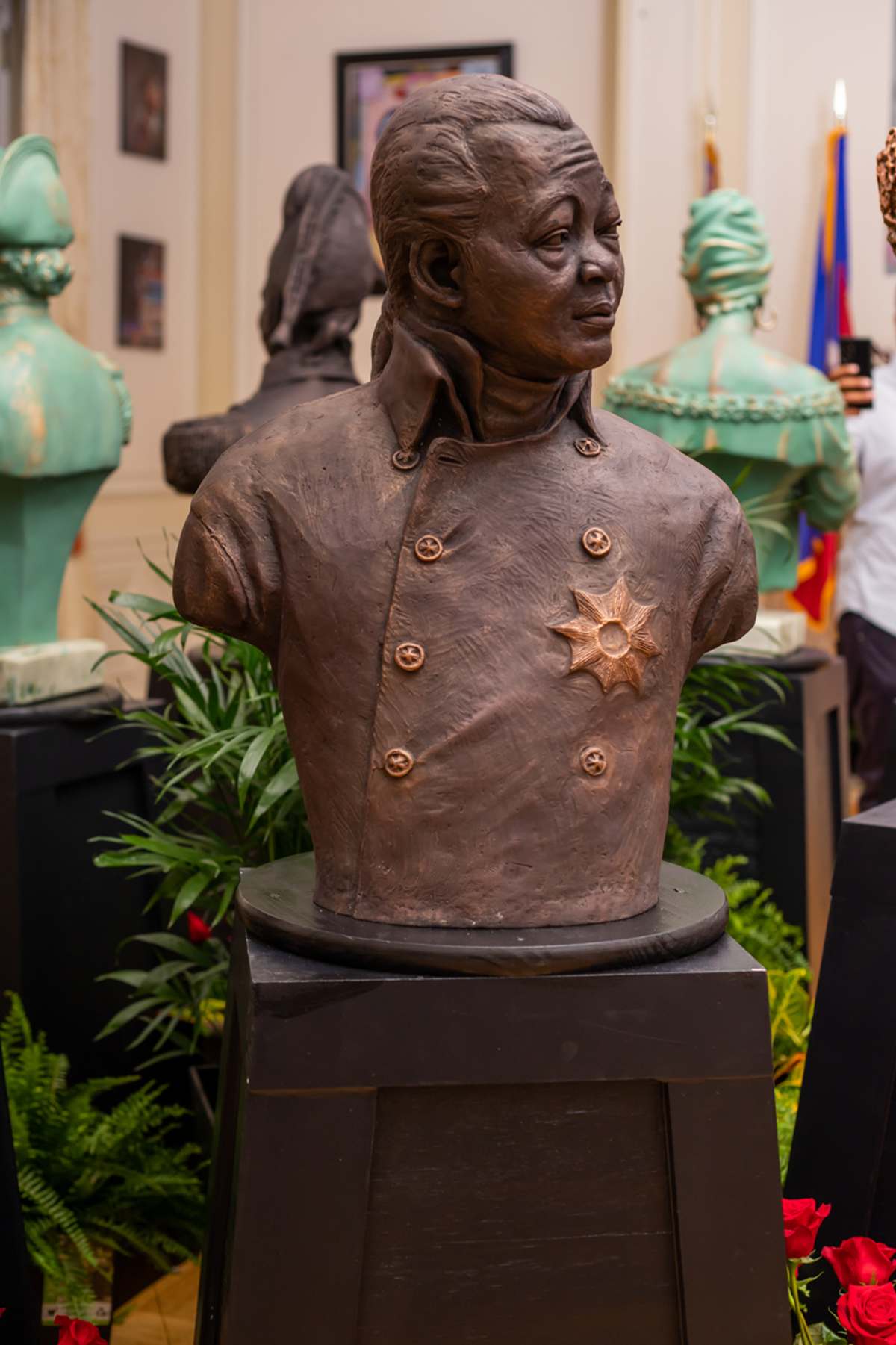How a utopian vision of Black freedom and self-government was undone in a world still in thrall to slavery and racism
After declaring independence from France on January 1, 1804, Haiti became the first state anywhere to permanently outlaw slavery and ban imperial rule. By establishing a land of freedom in a world of slavery, Haiti’s founders – the generals Jean-Jacques Dessalines, Henry Christophe and Alexandre Pétion – challenged the contradictions of the western European Enlightenment, whose proponents had pronounced liberty and equality to be only for white men. ‘I have avenged America,’ proclaimed Dessalines, independent Haiti’s first leader.
To this day, Haitian independence remains the most significant development in the history of modern democracy. The theories undergirding it – that no human beings could ever be enslaved – continue to define contemporary political ideas about what it means to be free.
Despite the Haitian Revolution, much of the credit for the eventual destruction of the transatlantic slave trade and the elimination of Atlantic slavery has gone to French and British abolitionists. The Trinidadian historian Eric Williams complained about this in his groundbreaking book Capitalism and Slavery (1944) when he wrote of the abolitionists: ‘their importance has been seriously misunderstood and grossly exaggerated by men who have sacrificed scholarship to sentimentality and, like the scholastics of old, placed faith before reason and evidence’. Many historians have likewise chosen to forget that Haiti’s fight to end slavery in the Americas didn’t cease when the Haitian revolutionaries declared victory over France.
The 19th-century French anti-slavery humanitarian and historian Victor Schoelcher diminished the importance of the Haitian Revolution when he suggested that the Haitian people didn’t use their newfound freedom to help end slavery elsewhere in the Americas. ‘Is it not a shame,’ he admonished, ‘that you have not taken any part in the efforts of Europe for emancipation, that you have not even sent any statement of solidarity or sympathy to the friends of emancipation, and that in this republic of emancipated slaves, there is not even a society of abolition?’ But Haitians did directly interfere with the inner workings of slavery: both discursively, by circulating anti-slavery pamphlets, and materially, by disrupting a key node in the international slave trade – the Middle Passage.
After Dessalines was assassinated in October 1806, Haiti was split into two, with Pétion ruling in the south and Christophe ruling in the north. Even though both states of Haiti had laws declaring that they wouldn’t interfere in the ‘business of other countries’, Pétion provided amnesty, weapons and ammunition to the Venezuelan freedom-fighter Simón Bolívar, who subsequently defeated Spanish rule to create the independent state of Gran Colombia; and both Haitian governments, but especially Christophe’s – crowned king of northern Haiti in 1811 – contributed to anti-slavery struggles by seizing slaving vessels and liberating their captives.
The most renowned of these liberation operations occurred in October 1817. The Royal Gazette of Hayti reported that Haitian authorities had captured a Portuguese frigate near the northern city of Cap-Henry. The ship was on its way from Cape Verde, off west Africa, to Havana when officials from the Kingdom of Hayti took control of it and set free 145 Africans, ‘victims of … the odious traffic in human flesh’. The captives were in ‘an awful state’: many had already perished, and the survivors ‘looked like ghosts ready to die of misery and starvation’. Once ashore in Haiti, they were greeted by a crowd who assured them that ‘they were free and among brothers and compatriots’.
Seven years earlier, the northern Haitian military had captured a different Portuguese slaver carrying two Hausa-speaking children. These so-called ‘nouveaux haytiens’ were as stunned to hear their native language as they were surprised to find some of their ‘former countrymen’ already living in Haiti: ‘It was as if they were meeting once again the parents from whom they had been ripped away.’ Such operations had by that time become common. The northern military intervened to stop the slave trade again on February 2, 1811 when they captured a Spanish ship, the Santa Ana, and liberated 205 Africans shackled in the hold.
Out of revenge, Spanish and Portuguese slavers began to attack Haitian merchant ships and engage in raids on Haitian beaches, seizing men, women and children to sell into slavery. In 1812, a Spanish schooner captured the Haitian brig Poule d’Or, and sold its captain, Azor Michel, and two children on board in Cuba. Azor and the children were returned only after Christophe intervened to request ‘the return of all Haitian subjects who are or may still be detained in Cuba’.
The existence of freedom and independence on the island of Haiti terrified planters and heads of slavery throughout the Atlantic World, including the US president Thomas Jefferson who had already punished Haiti by issuing a trade embargo. But Christophe’s success in forcing the return of captive Haitian citizens shows that, despite the precarious position of his Kingdom of Hayti, this monarch was not a powerless figurehead who could simply be pushed around by the colonial powers.
Read my full article, "The King of Haiti and the Dilemmas of Freedom in a Colonised World," over at Aeon magazine: https://aeon.co/essays/the-king-of-haiti-and-the-dilemmas-of-freedom-in-a-colonised-world
To cite this article: Marlene L. Daut, "On This Day in Haitian History: King Henry Christophe issues a constitution for the newly minted Kingdom of Hayti," King of Haiti's World blog, March 28, 2025: https://marlenedaut.com/blog/on-this-day-in-haitian-history-march-28-1811-king-henry-christophe
